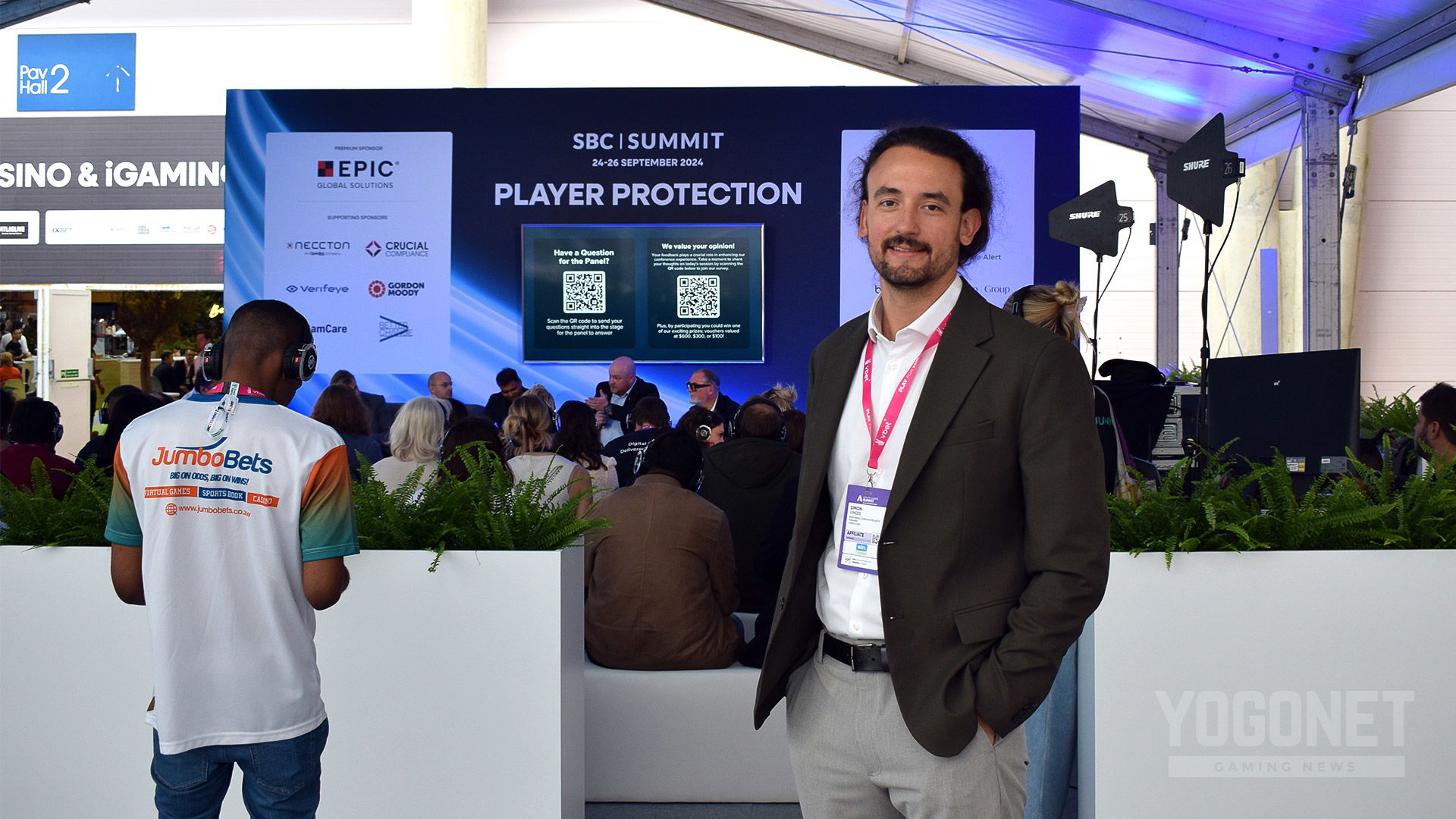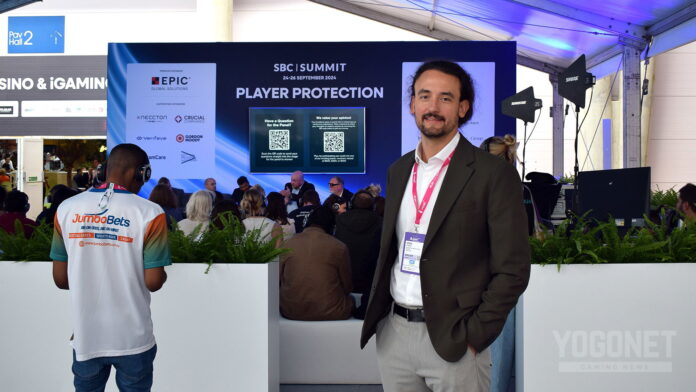
From September 24 to 26, the latest edition of the SBC Summit, held in Lisbon, gathered thousands of gambling stakeholders under one roof to explore and discuss the future of the industry. While much of the attention turned to the latest novelties exhibited at the expo floor, the show also featured a comprehensive safer gambling agenda, fostering conversations on how to best tackle this pressing issue.
Šimon Vincze, Head of Sustainable & Safer Gambling at Casino Guru, was among the experts in the field who attended the show. At the SBC Summit, Vincze engaged with other stakeholders, in addition to moderating a panel called “Whose responsibility is it anyway?”, exploring where the responsibility for minimizing gambling harm falls.
Yogonet held an interview with Vincze at the show, exploring the main takeaways from the session, the main differences between regulation and self-regulation, and the key points behind Casino Guru’s Global Self-Exclusion Initiative.
What are some of the major topics surrounding player protection that were discussed at the show, and what can you tell us about the panel you moderated?
One of the most important topics is how to interact with players who are at risk. The technology and detection mechanisms are now quite comprehensive, and you can have information about players in potential risk quite well detected. But the difficult part is to engage with them and achieve the goal of minimizing harm because players and operators can approach such conversations in different ways. From my perspective, it’s kind of an alchemy to figure out the right tone, the right time, and the right way to approach them.
The panel I moderated at SBC covered another important topic. The session tried to answer the question: who is responsible for decreasing gambling-related harm – is it the operator or the player? I think the answer is not that simple. When you think about it from the perspective of gambling activity, primarily it would be the operators or rather the regulators, yes, who are setting up the tone. But other factors influence the amount of harm. At the panel, we looked into what these other factors are.
What is the major factor influencing harm reduction?
It would be regulation because that is still the main factor in setting up the requirements for responsible gambling. Even though safer and responsible gambling has gained a lot of traction in the past few years, to my disappointment, big changes are still mainly driven by regulation. Self-regulation, to some exceptions, is not making any big changes.
Self-regulation could work, but I believe it would have to be aligned with what is efficient or commercially feasible. Operators have to see that the way forward for harm reduction is to watch over their players and guide them through their journeys so that they will not be experiencing harm, making them aware of risks and keeping their gambling to entertainment.
It can be commercially feasible for you as an operator because you will have a database of healthy players who can spend money, so you won’t have to spend so much on acquiring new players. Self-regulation can work when operators see the clear numbers and results of it. It would be very beneficial if operators that are embracing this as a result of regulation share more data and evidence that it can be commercially viable.
That’s the type of self-regulation that I believe could gain ground. It’s already happening in some markets, but we have a long way ahead of us until something like this happens in the offshore jurisdictions. However, once we have clearer evidence from the operators, more companies will start implementing safer gambling without the regulatory requirements.
One of the key initiatives that you lead at Casino Guru is the Global Self-Exclusion Initiative. What are the latest developments within this endeavor?
The initiative for global self-exclusion is better defined as a campaign because it is something that cannot be achieved from one single point. It has to be the result of the collaboration of many stakeholders.
In regards to the newest developments, the self-regulation that I was talking about was the main point on how the global self-exclusion system could develop. We were looking into the willingness of the operators to be part of the system and do the extra step to protect their players. But after three years of having this approach, we see that it’s not working out.
With this being such a big disruption to the responsible gambling agenda of the operators, the incentive for them to join the campaign is not that big. We are pivoting it to refocus on regulation, especially in offshore jurisdictions. When you think about it, you don’t really need a global system. You just need the system that connects jurisdictions that are accepting players from different countries.
What role do partnerships play in the self-exclusion campaign?
A big one. A major recent development was the establishment of a partnership with BetBlocker, a software that blocks access to gambling-related websites or gambling-related apps, which you can install on your laptop or any device. We partnered with them because apps like that are currently the only form of international self-exclusion, and we wanted to have something practical as part of our campaign. Something usable for players, which is ready and can bring immediate value.
As a first step of the partnership, we have incorporated the product into our campaign. When we are increasing awareness and working on projects connected with global self-exclusion, we want to have BetBlocker as a part of that conversation. On the other side, BetBlocker users can benefit from the tools and resources for responsible gambling that Casino Guru provides, namely, the Self-exclusion Assistance Tool and the database of problem gambling help centers.
In Europe, we see that while online markets share certain uniformity across states, the license regimes and regulations can significantly vary. Can you share with us your assessment of how the landscape of iGaming is evolving across the region?
This is actually a topic that I have been looking into recently and it is rather a complex one. It’s not only about using a different approach in every state, which to some extent makes sense because Europe is not culturally the same. But for example, the details of responsible gambling features implementation, procedures with self-exclusion, or measurement of problem gambling prevalence are not unified at all. And there is little evidence why it should be like that. As a matter of fact, harmonization in this would allow for better implementation, enforcement, and comparison across states.
We are currently working on a project on standardization of self-exclusion practice. The Self-exclusion Standards project aims to produce a set of recommendations by focusing on the discussion of best practices for online self-exclusion among industry stakeholders. Led by Dr Margaret Carran from City, University of London, this project aims to produce a set of recommendations resulting from a thorough methodology consisting of research, fact-finding, collaboration within the project workgroup, and broader consultation with online gambling stakeholders.














